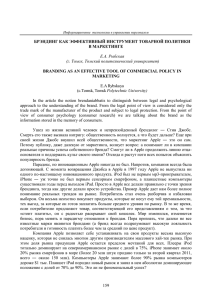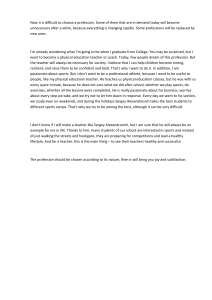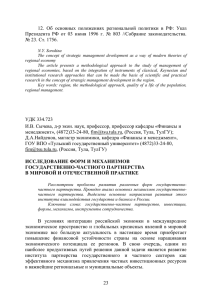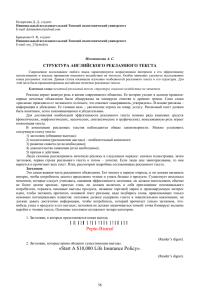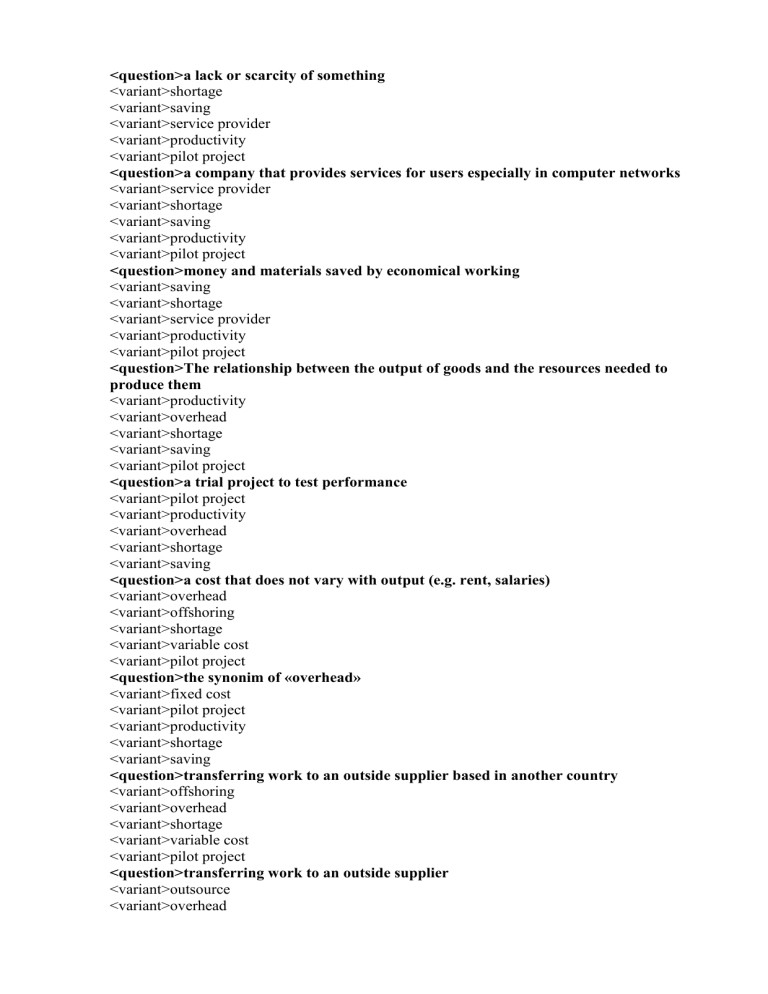
<question>a lack or scarcity of something <variant>shortage <variant>saving <variant>service provider <variant>productivity <variant>pilot project <question>a company that provides services for users especially in computer networks <variant>service provider <variant>shortage <variant>saving <variant>productivity <variant>pilot project <question>money and materials saved by economical working <variant>saving <variant>shortage <variant>service provider <variant>productivity <variant>pilot project <question>The relationship between the output of goods and the resources needed to produce them <variant>productivity <variant>overhead <variant>shortage <variant>saving <variant>pilot project <question>a trial project to test performance <variant>pilot project <variant>productivity <variant>overhead <variant>shortage <variant>saving <question>a cost that does not vary with output (e.g. rent, salaries) <variant>overhead <variant>offshoring <variant>shortage <variant>variable cost <variant>pilot project <question>the synonim of «overhead» <variant>fixed cost <variant>pilot project <variant>productivity <variant>shortage <variant>saving <question>transferring work to an outside supplier based in another country <variant>offshoring <variant>overhead <variant>shortage <variant>variable cost <variant>pilot project <question>transferring work to an outside supplier <variant>outsource <variant>overhead <variant>shortage <variant>variable cost <variant>pilot project <question>to reduce the number of employees in an organisation <variant>downsize <variant>database <variant>back office <variant>business process <variant>point of sale <question>an organised set of information stored in a computer <variant>database <variant>downsize <variant>back office <variant>business process <variant>point of sale <question>the departments of a financial company where routine admistrative tasks are done without direct contact with customers <variant>back office <variant>downsize <variant>database <variant>business process <variant>point of sale <question>any activity that is essential for a firm to conduct its business <variant>business process <variant>database <variant>downsize <variant>back office <variant>point of sale <question>the place where a consumer can buy a product or service <variant>point of sale <variant>back office <variant>downsize <variant>database <variant>business process <question>a method of communicating and publicising a product <variant>promotion <variant>premium <variant>downsize <variant>back office <variant>point of sale <question>activities that help sell a product <variant>promotion <variant>premium <variant>downsize <variant>back office <variant>point of sale <question>a price that is higher than the standard price, usually due to higher quality <variant>premium <variant>promotion <variant>downsize <variant>back office <variant>point of sale <question>normally a manufactured item but also refers to everything that surrounds it: the brand, the packaging, the features and performance characteristics <variant>product <variant>promotion <variant>place <variant>price <variant>point of sale <question>the distribution and delivery of goods to market <variant>place <variant>product <variant>promotion <variant>price <variant>logo <question>the amount of money for which something can be sold <variant>price <variant>product <variant>promotion <variant>place <variant>point of sale <question>the combination of marketing activities it uses in order to promote a particular product or service <variant>marketing mix <variant>marketing mixer <variant>marketing mixture <variant>marketer <variant>premium brand <question>a sign or symbol used as a trademark to represent a company or a brand <variant>logo <variant>consumer <variant>benefit <variant>brand loyalty <variant>benefit <question>a person who buys products and/or services <variant>consumer <variant>logo <variant>benefit <variant>brand loyalty <variant>premium brand <question>an advantage or an improvement <variant>benefit <variant>consumer <variant>logo <variant>brand loyalty <variant>premium brand <question>the tendency of consumers to continue buying a particular brand instead of trying a different one <variant>brand loyalty <variant>benefit <variant>consumer <variant>logo <variant>premium brand <question>any factor which prevents new competition from entering a market <variant>barrier to entry <variant>benefit <variant>consumer <variant>logo <variant>premium brand <question>the amount of money or possessions owned by an individual, organisation or country <variant>wealth <variant>barrier to entry <variant>consumer <variant>logo <variant>premium brand <question>money received especially from selling goods and services <variant>revenue <variant>barrier to entry <variant>consumer <variant>logo <variant>premium brand <question>the amount of something kept for future use <variant>reserve <variant>barrier to entry <variant>consumer <variant>logo <variant>premium brand <question>a state of being rich, having economic success <variant>prosperity <variant>reserve <variant>barrier to entry <variant>consumer <variant>premium brand <question>formal discussions between people who have different aims or intentions, especially in business or politics, during which they try to reach an agreement <variant>negotiation <variant>prosperity <variant>Reserve <variant>barrier to entry <variant>premium brand <question>the growth and expansion of a business, industry or economy <variant>development <variant>logo <variant>Reserve <variant>barrier to entry <variant>premium brand <question>an association between two or more companies to work together on a specific project (usually a major construction or engineering project) <variant>consortium <variant>start up <variant>logo <variant>barrier to entry <variant>premium brand <question>costs that vary depending on how much of a product is made. <variant>variable costs <variant>fixed costs <variant>logo <variant>barrier to entry <variant>premium brand <question>the money that is required to produce or sell something <variant>cost <variant>board <variant>logo <variant>barrier to entry <variant>premium brand <question>Greenpeace have suggested that it _____________ be possible to reduce deforestation if traditional forms of agriculture are promoted. <variant>might <variant>must <variant>would <variant>have <variant>is going to <question>According to some calculations, 16 per cent of the forest area ______ already have been destroyed. <variant>may <variant>will <variant>would <variant>have <variant>going to <question>If big layoffs result at home, … <variant>the US government will face a backlash. <variant>the US government was facing a backlash. <variant>the US government would face a backlash. <variant>the US government would have faced a backlash. <variant>the US government will have facing a backlash. <question>If US salaries were lower, <variant>companies wouldn’t transfer work overseas. <variant>companies won’t transfer work overseas. <variant>companies wouldn’t has transferred work overseas. <variant>companies transfer work overseas. <variant>companies don't transfer work overseas. <question>if I / have / bigger salary / be / more motivated <variant>If I had a bigger salary, I would be more motivated <variant>If I had a bigger salary, I will be more motivated <variant>If I had have a bigger salary, I would been more motivated <variant>If I have had a bigger salary, I would be more motivated <variant>If I will have a bigger salary, I would be more motivated <question>My mum thinks that cats are ___________ pets than dogs <variant>better <variant>good <variant>well <variant>the best <variant>more well <question>Cycling is one of ___________ sports <variant>the most dangerous <variant> more dangerous <variant>more dangerouser <variant>dangerouser <variant>the most dangerously <question>The new teacher explains the rules _______ than our book. <variant>more completely <variant>completely <variant>more complete <variant>completer <variant>the most completely <question>Something belonging to an individual or business that has value or the power to earn money is <variant>Asset <variant>Entrepreneur <variant>Competition <variant>Bureaucracy <variant>Stock market <question>Assets which are not physical, such as trademarks, customer lists, and goodwill.is <variant>Intangible assets <variant>Tangible assets <variant>Bureaucracy <variant>Entrepreneur <variant>Competition <question>Physical financial assets, for example, property, vehicles, equipment, etc is <variant>Tangible assets <variant>Intangible assets <variant>Bureaucracy <variant>Entrepreneur <variant>Competition <question>A company's permanent assets, such as buildings, equipment, and technology is <variant>Fixed assets, Liquid ? <variant>Intangible assets <variant>Bureaucracy <variant>Entrepreneur <variant>Competition <question>Assets in the form of money or easily convertible into money is <variant>Liquid assets <variant>Holding company <variant>Bureaucracy <variant>Entrepreneur <variant>Competition <question>A legally registered business is <variant>Company <variant>Asset <variant>Freelance <variant>Entrepreneur <variant>Share certificate <question>Someone who works for different companies and is not employed by one is <variant>Freelancer <variant>Company <variant>Asset <variant>Hierarchy <variant>Share certificate <question>Someone who starts a company, arranges business deals and takes risks is <variant>Entrepreneur <variant>Company <variant>Asset <variant>Hierarchy <variant>Share certificate <question>System of authority within an organization is <variant>Hierarchy <variant>Entrepreneur <variant>Share <variant>Asset <variant>Share certificate <question>a document issued by a company certifying ownership of one or more of its shares is <variant>Share certificate <variant>Freelance <variant>Company <variant>Asset <variant>Hierarchy <question>a company that has enough shares in one or more other companies to be able to control the other companies is <variant>Holding company <variant>Subsidiary company <variant>Stock market <variant>Entrepreneur <variant>Freelance <question>a company that is owned by the people who have bought shares in that company is <variant>Joint stock company <variant>Stock market <variant>Entrepreneur <variant>Freelance <variant>Hierarchy <question>a company with at least half of its capital stock owned by another company is <variant>Subsidiary company <variant>Holding company <variant>Stock market <variant>Entrepreneur <variant>Freelance <question>a company whose shares can be bought by the general public is <variant>Public limited company <variant>Stock market <variant>Entrepreneur <variant>Freelance <variant>Liquid assets <question>a company that owns more than half the shares of another company is <variant>Parent company <variant>Subsidiary company <variant>Stock market <variant>Entrepreneur <variant>Freelance <question>Rivalry between business that are operating in the same market is <variant>Competition <variant>Benefit <variant>Merger <variant>Share <variant>Bureaucracy <question>the joining together of two separate companies or organizations so that they become one is <variant>Merger <variant>Competition <variant>Competitive advantage <variant>Share <variant>Bureaucracy <question>an advantage based on success in competition is <variant>Competitive advantage <variant>Merger <variant>Competition disadvantage <variant>Share <variant>Bureaucracy <question>A unit of the capital of a company is <variant>Share <variant>Competitive advantage <variant>Merger <variant>Competition <variant>Bureaucracy <question>refers to all the rules and procedures followed by government departments and similar organizations, especially when you think that these are complicated and cause long delays is <variant>Bureaucracy <variant>Competitive advantage <variant>Merger <variant>Competition <variant>Share <question>It consists of the general activity of buying stocks and shares, and the people and institutions that organize it is <variant>Stock market <variant>Share capital <variant>Share certificate <variant>Share issue <variant>Share price <question>the money that shareholders invest in order to start or expand the business is <variant>Share capital <variant>Stock market <variant>Share certificate <variant>Share issue <variant>Share price <question>a document issued by a company certifying ownership of one or more of its shares is <variant>Share certificate <variant>Stock market <variant>Share capital <variant>Share issue <variant>Share price <question>When shares in a company are made available for people to buy is <variant>Share issue <variant>Stock market <variant>Share capital <variant>Share certificate <variant>Share price <question>the price of an individual share in a company is <variant>Share price <variant>Stock market <variant>Share capital <variant>Share certificate <variant>Share issue <question>An organization that exists to protect the rights of employees in a company is <variant>Trade union <variant>Stock market <variant>Share capital <variant>lease <variant>performance appraisal <question>a legal agreement by which the owner of a building, a piece of land, or something such as a car allows someone else to use it for a period of time in return for money is <variant>lease <variant>Trade union <variant>Stock market <variant>Share capital <variant>performance appraisal <question>the assessment, at regular intervals, of an employee's performance at work is <variant>performance appraisal <variant>lease <variant>Trade union <variant>Stock market <variant>Share capital <question>To assess the value of something <variant>Appraise <variant>Lease <variant>Supervise <variant>Delegate <variant>Motivate <question>To ensure that the work there is done properly <variant>Supervise <variant>Appraise <variant>Lease <variant>Delegate <variant>Motivate <question>Rent a building on a temporary basis <variant>Lease <variant>Appraise <variant>Supervise <variant>Delegate <variant>Motivate <question>To give responsibility to someone at a lower level in the hierarchy to enable them to take decisions <variant>Delegate <variant>Supervise <variant>Appraise <variant>Lease <variant>Motivate <question>to make someone willing to work harder <variant>Motivate <variant>Lease <variant>Appraise <variant>Supervise <variant>Delegate <question>a person who is responsable for training a team or an individual is <variant>coach <variant>staff <variant>middle manager <variant>Lease <variant>Subordinate <question>the people who work for a company are <variant>staff <variant>coach <variant>freelancer <variant>Lease <variant>board <question>chief executive officer <variant>CEO <variant>coach <variant>staff <variant>Lease <variant>Subordinate <question>A person who works under a more senior member of a staff is <variant>Subordinate <variant>coach <variant>board <variant>CEO <variant>Lease <question>the person with overall responsibility for the efficient running of a company, organization, etc is <variant>CEO <variant>coach <variant>staff <variant>Lease <variant>Subordinate <question>To provide workers for an organization <variant>Staff <variant>Lease <variant>Appraise <variant>Supervise <variant>Delegate <question>A goal that has been fixed for people to acheeve is <variant>Objective <variant>chairperson <variant>staff <variant>Authority <variant>Autonomy <question>piece of work which you have to do, usually as part of a larger project is <variant>Task <variant>Objective <variant>staff <variant>Authority <variant>Autonomy <question>A public institution which is in charge of enforcing regulations or administering a govern serveice is <variant>Authority <variant>Objective <variant>Task <variant>staff <variant>lease <question>The freedom to make your own decisions without having to request authorization is <variant>Autonomy <variant>Task <variant>Objective <variant>staff <variant>lease <question>The power to impose decisions is <variant>Authority <variant>Objective <variant>Task <variant>staff <variant>lease <question>Permanent job is <variant>Lifetime employment <variant>Customized <variant>staff <variant>Lease <variant>Subordinate <question>modified according to a buyer’s individual requirements is <variant>Customized <variant>Lifetime employment <variant>staff <variant>Lease <variant>Subordinate <question>the process of considering something carefully or using statistical methods in order to understand it or explain it <variant>Analysis <variant>Lifetime employment <variant>industry <variant>growth <variant>Campaign <question>a series of coordinated activities, such as public speaking and demonstrating, designed to achieve a social, political, or commercial goal is <variant>Campaign <variant>industry <variant>Analysis <variant>Lifetime employment <variant>growth <question>An increase in the size or quantity of something is <variant>growth <variant>campaign <variant>industry <variant>analysis <variant>lifetime employment <question>the work and processes involved in collecting raw materials, and making them into products in factories is <variant>industry <variant>growth <variant>Campaign <variant>Analysis <variant>Lifetime employment <question>The proportion of the total market that is supplied by a particular company is <variant>Market share <variant>Opportunity <variant>Resource <variant>Sales <variant>Strategy <question>a situation with future potential is <variant>Opportunity <variant>Market share <variant>Staff <variant>Sales <variant>Strategy <question>the materials, money, and other things that they have and can use in order to function properly is <variant>Resource <variant>Market share <variant>Opportunity <variant>Sales <variant>Strategy <question>the number of goods, products, or services that a company sells within a certain time period is <variant>Sales <variant>Opportunity <variant>Market share <variant>Staff <variant>Strategy <question>a general plan or set of plans intended to achieve something, especially over a long period is <variant>Strategy <variant>Resource <variant>Market share <variant>Opportunity <variant>Sales <question>the department of a company that is responsible for selling its products is <variant>Sales <variant>Opportunity <variant>Market share <variant>Resource <variant>Strategy <question>you take advantage of an opportunity and do something that you want to do <variant>Seize an opportunity <variant>Supply <variant>Threat <variant>Demand <variant>Retail <question>an amount of goods or services available for a market at a certain time is <variant>Supply <variant>Opportunity <variant>Threat <variant>Demand <variant>Retail <question>A potential danger to the interests of a company is <variant>Threat <variant>Supply <variant>Opportunity <variant>Demand <variant>Retail <question>the amount of a commodity that consumers are willing and able to purchase at a specified price is <variant>Demand <variant>Supply <variant>Opportunity <variant>Threat <variant>Retail <question>the activity of selling goods direct to the public, usually in small quantities is <variant>Retail <variant>Threat <variant>Supply <variant>Opportunity <variant>Demand <question>an employee of a company who travels around a particular area selling the company's goods to shops, etc is <variant>Sales representative <variant>Trend <variant>Producer <variant>Diverse <variant>Demand <question>something that becomes accepted or fashionable, and that a lot of other people copy <variant>Trend <variant>Sales representative <variant>Producer <variant>diverse <variant>Demand <question>a company or country that grows or manufactures a large amount of food or material <variant>Producer <variant>Sales representative <variant>Trend <variant>diverse <variant>Demand <question>a wide variety of things is <variant>diverse <variant>Trend <variant>Sales representative <variant>Producer <variant>Demand <question>a statement of what is judged likely to happen in the future of a particular economy is <variant>Economic forecast <variant>Sales representative <variant>Trend <variant>diverse <variant>Demand <question>the activity of buying and selling goods in large quantities and therefore at cheaper prices, usually to shopkeepers who then sell them to the public is <variant>wholesale <variant>retail <variant>Trend <variant>diverse <variant>Demand <question>The group of directors elected by the shareholders to manage a company is <variant>Board <variant>Budget <variant>Trend <variant>Compensation <variant>Demand <question>the amount of money that a person, organization, or country has available to spend on it is <variant>Budget <variant>Board <variant>Trend <variant>Compensation <variant>Demand <question>an itemized summary of expected income and expenditure of a country, company, etc, over a specified period, usually a financial year is <variant>Budget <variant>Board <variant>Trend <variant>Compensation <variant>Demand <question>Payment, including salary and other incentives like stock options is <variant>Compensation <variant>Budget <variant>Board <variant>Trend <variant>Demand <question>money to be paid as compensation to a person for injury, loss, etc is <variant>Damages <variant>Board <variant>Trend <variant>Legal action <variant>stipend <question>Using the law to defend one’s rights is <variant>Legal action <variant>Damages <variant>Board <variant>Trend <variant>pension <question>a regular payment made by an employer to former employees after they retire is <variant>pension <variant>Legal action <variant>Damages <variant>Board <variant>Trend <question>Money earned by an employee as a salary or wage is <variant>Pay <variant>pension <variant>Legal action <variant>Damages <variant>Trend <question>To give money to someone in exchange for items or services <variant>Pay <variant>own <variant>earn <variant>reject <variant>Make a fuss <question>the money that someone is paid each month by their employer, especially when they are in a profession such as teaching, medicine is <variant>Salary <variant>pension <variant>Legal action <variant>Damages <variant>Trend <question>compensation paid by an organization to employees who leave because, through no fault of their own, the job to which they were appointed ceases to exist, as during rationalization, and no comparable job is available to them <variant>Severance deal/pay <variant>Stock option <variant>Reward <variant> pension <variant>Make a fuss <question>an opportunity for the employees of a company to buy shares at a special price <variant>Stock option <variant>Severance deal/pay <variant>Reward <variant>pension <variant>Make a fuss <question>To give a payment for services or for excellent work or behavior <variant>Reward <variant>Severance deal/pay <variant>Stock option <variant> pension <variant>Make a fuss <question>Couse outrage <variant>Make a fuss <variant>Stock option <variant>Severance deal/pay <variant>Reward <variant>pension <question>To not accept <variant>reject <variant>pay <variant>own <variant>earn <variant>make a fuss <question>the amount of money that they are paid for the work that they do <variant>Remuneration <variant>Bonus <variant>Legal action <variant>Damages <variant>Trend <question>Disapproval <variant>Criticism <variant>Pension <variant>Legal action <variant>Damages <variant>Trend <question>One-off payment <variant>Bonus <variant>Pension <variant>Legal action <variant>Damages <variant>Trend <question>resign from an important job or position, often in order to let someone else take their place <variant>Step down <variant>Make a fuss <variant>Advise <variant>Call off <variant>Call on <question>To Recommend <variant>Advise <variant>Step down <variant>Make a fuss <variant>Call off <variant>Call on <question>to cancel <variant>Call off <variant>Step down <variant>Make a fuss <variant>Advise <variant>Call on <question>To Visit <variant>Call on <variant>Step down <variant>Make a fuss <variant>Advise <variant>Call off <question>to take care of <variant>look after <variant>Make a fuss <variant>Advise <variant>Call off <variant>Call on <question>Fail, be unsuccessful <variant>Break down <variant>look after <variant>Make a fuss <variant>Advise <variant>Call on <question>Fail, go bankrupt <variant>Go under <variant>look after <variant>Make a fuss <variant>Advise <variant>Call on <question>Prosper <variant>Go ahead <variant>look after <variant>Make a fuss <variant>Advise <variant>Call on <question>Establish <variant>Set up <variant>Go under <variant>Make a fuss <variant>Advise <variant>Call on <question>to draw someone's attention to <variant>Point out <variant>look after <variant>Make a fuss <variant>Advise <variant>Call on <question>What ______ they specialize in? <variant>do <variant>does <variant>is <variant>are <variant>am <question>Where _______ subsidiaries? <variant>does the company have <variant>do the company have <variant>is the company having <variant>are the company having <variant>am the company having <question>What time ______ work? <variant>does she start <variant>does she starts <variant>is she starting <variant>do she starts <variant>are she starting <question>John … on a project in his room <variant>is working <variant>works <variant>work <variant>is work <variant>are working <question>I really … your new hair. <variant>like <variant>likes <variant>is liking <variant>am liking <variant>are liking <question>July … to work at the moment <variant>is driving <variant>drive <variant>are driving <variant>drove <variant>has driven <question>My brother and I … homework right now. <variant>are doing <variant>am doing <variant>is doing <variant>do <variant>does <question>Take these pills three times _____ day. <variant>a <variant>the <variant>an <variant><variant>to <question>_____ schools are the places where ____ children learn to read. <variant>-,<variant>a,a <variant>the,the <variant>the, <variant>-,the <question>My mother likes _____ painting <variant><variant>the <variant>a <variant>an <variant>these <question>I have never known such ____ cold winter. <variant>a <variant>an <variant>the <variant>then <variant>this <question>This is ____ John's book. <variant><variant>the <variant>an <variant>a <variant>mine <question>_____ health is more important than____ money. <variant>-,<variant>the,the <variant>-,the <variant>the,<variant>a, a <question>You can read about it on _____ Internet. <variant>the <variant><variant>an <variant>a <variant>then <question>It is _____ best job I have ever had. <variant>the <variant><variant>a <variant>an <variant>this <question>The train _______ at 11.00. <variant>leaves <variant>leaving <variant>leave <variant>are leaving <variant>are going to leave <question>Listen! There's someone at the door. I______ the door for you. <variant>will open <variant>am going to open <variant>am opening <variant>open <variant>will be opened <question>On Sunday at 8 o'clock I________ my friend. <variant>am meeting <variant>meet <variant>is meeting <variant>is going to meet <variant>will meets <question>the children _____ go to school on Monday. <variant>didn’t go <variant>didn’t went <variant>haven’t gone <variant>hasn’t gone <variant>hasn’t went <question>He _______ a chairman for 5 years. <variant>has been <variant>is <variant>was <variant>were <variant>have been <question>I ________ the company in 2017. <variant>joined <variant>was joining <variant>have joined <variant>has joined <variant>were joining <question>Choose the right question: <variant>Has the report been published yet? <variant>Was the report published yet? <variant>Did the report publish yet? <variant>Have the report been published yet? <variant>Has been the report published yet? To provide goods or services to customers, especially regularly over a long period of time: * + supply assembly efficiency resource waste To not accept * +reject pay own earn make a fuss Parts are manufactured in Japan and … is done in Turkey. * + assembly capacity component efficiency production The term “inflation” means … * + a continuing increase in the prices of goods and services. the growth and improvement of a business, industry and economy. the system by which a country’s goods and services are produced and used. the number of people in an area or country who have jobs, the types of jobs the y have. an increase in the value of goods and services provided in a country or area. The process of putting the parts of a product together in manufacturing: * + assembly capacity component efficiency production The amount of something that a factory can produce: * +capacity assembly component efficiency production Our production … has increased with the new technology. * +capacity assembly component efficiency production The process of making or growing things to be sold as products, usually in large quantities: * + production assembly capacity efficiency just-in-time Toshiba is increasing … of its popular laptop computers. * + production assembly efficiency just-in-time waste The relationship between the amount of goods that a factory produces and theresources needed to produce them: * +productivity assembly just-in-time production waste This can include the money, buildings, machinery, materials, skills and workforce that a company has available: * + resource assembly efficiency production productivity To use more of something, especially time or money, than you need to, or to use it in a way that is not economical: * + waste supply deliver promote improve A way of developing new ideas and solving problems by having a meeting whereeveryone makes suggestions and these are discussed: * + brainstorming challenge discovery efficiency just-in-time We need to find a … solution to the problem of falling sales. * + creative discovery delivery supply waste Researchers have made some interesting … about human thinking. * + discoveries deliveries efficiencies productivity supplies The introduction of new ideas or methods: * + innovation creativity delivery efficiency supply There are no simple … to the problem of unemployment. * + solutions assemblies deliveries discoveries efficiencies A way of doing something that has existed for a long time: * + tradition assembly creativity discovery innovation … employees stay with that company and don’t seek jobs in other companies. * + Loyal Creative Innovative JIT Powerful Willingness and enthusiasm to do something without being told to do it: * + motivation creativity efficiency loyalty tradition Having a high position in an organisation or company: * +senior creative discovery JIT loyal The term “development” means … * + the growth and improvement of a business, industry and economy the system by which a country’s goods and services are produced and used. the number of people in an area or country who have jobs, the types of jobs they have. an increase in the value of goods and services provided in a country or area. a continuing increase in the prices of goods and services. The term “economy” means … * + the system by which a country’s goods and services are produced and used. the growth and improvement of a business, industry and economy. the number of people in an area or country who have jobs, the types of jobs they have. an increase in the value of goods and services provided in a country or area. a continuing increase in the prices of goods and services. The term “employment” means … * + the number of people in an area or country who have jobs, the types of jobs they have. the growth and improvement of a business, industry and economy. the system by which a country’s goods and services are produced and used. an increase in the value of goods and services provided in a country or area. the number of people in an area or country who don’t have a job The term “growth” means … * + an increase in the value of goods and services provided in a country or area. the growth and improvement of a business, industry and economy. the system by which a country’s goods and services are produced and used. the number of people in an area or country who have jobs, the types of jobs they have. a continuing increase in the prices of goods and services. The ability to make decisions and take action without waiting for someone to tell you what to do: * + ? initiative assembly creativity discovery innovation The term “infrastructure” means … * + the basic systems and structures that a country needs to make economic activity possible, e.g. roads, communications, electricity the place where something is situated a large company that has offices, factories and business activities in many countries a large area of a country or of the world the number of people in an area or country who don’t have a job If I were you, I … to the beach instead of preparing for exams. * + wouldn't go didn't go won't go hadn't gone wouldn’t have gone What's … most exciting sport you've ever done? * + the a an What’s … longest river in the world? * + the a an - He lives in ... small village. * +a an the I'm leaving on ... 5.30 bus. * + the a an ... hummer is .. tool. * + A/a The/the A/the The/a -/I've got ... blue eyes, ... small nose, ... big mouth and ... dark hair. * + -/a/a/a/a/a/-/the/a/a the/-/-/a I like talking to ... old ladies who live in that house. * + the a an I love ... tennis, but I hate ... football. * + -/a/a an/an the/the ... did you launch this advertising campaign? * + When What How many How long How much ….. is your sales forecast? * + What Who Why Whose How many ….. they agreed to the credit terms? – Well, they’re thinking about them. * + Have Are Will Do Did .. the price going up next year? – No, it’s high enough. * + Is Are Was Did Will The construction project ….. ready for the new hotel. * + will be be were being is being Did you have a message for Dan? – Tell him I’ll call him on Friday if you …him. * +see saw had seen has seen will see If he ….. to, he could become CEO. * + wanted want is wanted will want would want My car ….. at the moment. * +is being repaired is repaired was repaired were repaired will been repaired They ... a business journal when I came. * + were reading reading is reading are reading was reading They ….. running their own company in 1980. * + started start have started are starting were starting ... you met our new manager? * + Have Do Did When How Currently, we ….. some major changes in the department. * + are planning plan planning were planned are planned At present I ….. the division while my boss is away. * + am managing manage managed am managed have managed It’s a temporary problem and these delays ….. very soon. * + are ending end ended have ended are ended How often ….. you ….. meetings? * + do / have did / had had / had are / having are / had We ….. a completely new image for the brand. * + are developing are develop are developed not develop have develop ... to Milan? * + Have you been Have you be Have been you You have been Has you been We _____ to the cinema last night. * + went have been have gone gone going That was probably ________ coffee I’ve ever drunk! * + the worst as bad worse the worse the most bad He ___________a film on TV when I arrived. * + was watching watched was watched has watched had watched We wouldn’t have gone to that restaurant if we ..... its prices. * + had known know knew will knew have been known <question>One part used in making a machine, vehicle, etc.: + <answer>component <answer>efficiency <answer>production <answer>assembly <answer>capacity <question>The act or process of bringing goods to the place or person who has ordered them: + <answer>delivery <answer>assembly <answer>capacity <answer>component <answer>efficiency <question>How well an industrial process, factory or business works so that it produces as much as possible from the time, money and resources that are put into it: + <answer>efficiency <answer>production <answer>assembly <answer>capacity <answer>delivery <question>If goods are produced or bought using a just-in-time system, they are delivered just before they are needed, which reduces the cost to the company of keeping goods for long periods of time. +<answer>just-in-time <answer>efficiency <answer>production <answer>assembly <answer>capacity <question>An extra amount of money added to an employee’s salary for doing difficult or good work: +<answer>bonus <answer>assembly <answer>performance <answer>power <answer>waste <question>… employees stay with that company and don’t seek jobs in other companies. + <answer>Loyal <answer>Creative <answer>JIT <answer>Loyal <answer>Innovative <answer>Powerful <question>The term “location” means … <answer>the place where something is situated <answer>the basic systems and structures that a country needs to make economic activity possible, e.g. roads, communications, electricity <answer>a large company that has offices, factories and business activities in many countries <answer>a large area of a country or of the world <answer>the number of people in an area or country who don’t have a job <answer>a large company that has offices, factories and business activities in many countries <answer>the basic systems and structures that a country needs to make economic activity possible, e.g. roads, communications, electricity ? <question>The term “multi-national” means … <answer>the place where something is situated <answer>a large area of a country or of the world <answer>the number of people in an area or country who don’t have a job <answer>a large area of a country or of the world <answer>the basic systems and structures that a country needs to make economic activity possible, e.g. roads, communications, electricity ?<question>The term “region” means … <answer>the place where something is situated <answer>a large company that has offices, factories and business activities in many countries <answer>the number of people in an area or country who don’t have a job <answer>the number of people in an area or country who don’t have a job <answer>the basic systems and structures that a country needs to make economic activity possible, e.g. roads, communications, electricity <question>The term “unemployment” means … <answer>a large company that has offices, factories and business activities in many countries <answer>a large area of a country or of the world <answer>the number of people in an area or country who have jobs, the types of jobs they have. <answer>a formal, written request for something <answer>someone that a company is considering for a job <question>The term “application” means … <answer>a profession or job you have trained for and intend to do for your working life, and which offers the chance to improve your status and salary <answer>a document that gives details of a person’s experience and qualifications <answer>knowledge or skill that you have from doing a particular job <question>The term “candidate” means … <answer>someone that a company is considering for a job <answer>a profession or job you have trained for and intend to do for your working life, and which offers the chance to improve your status and salary <answer>a formal, written request for something <answer>a document that gives details of a person’s experience and qualifications <answer>knowledge or skill that you have from doing a particular job <question>The term “career” means … <answer>someone that a company is considering for a job <answer>a formal, written request for something <answer>a profession or job you have trained for and intend to do for your working life, and which offers the chance to improve your status and salary <answer>a document that gives details of a person’s experience and qualifications <answer>knowledge or skill that you have from doing a particular job <question>The term “curriculum vitae” means … <answer>a document that gives details of a person’s experience and qualifications <answer>a profession or job you have trained for and intend to do for your working life, and which offers the chance to improve your status and salary <answer>someone that a company is considering for a job <answer>a formal, written request for something <answer>knowledge or skill that you have from doing a particular job <question>The term “experience” means … <answer>knowledge or skill that you have from doing a particular job <answer>a profession or job you have trained for and intend to do for your working life, and which offers the chance to improve your status and salary <answer>someone that a company is considering for a job <answer>a formal, written request for something <answer>a document that gives details of a person’s experience and qualifications <question>The term “headhunting” means … <answer>the department in a company that deals with recruitment, training and helping employees <answer>finding a manager with the right skills and experience to do a particular job, often by persuading a suitable person to leave their present job <answer>a formal meeting where someone is asked questions to find out if they are suitable for a job <answer>the regular paid work that you do for an employer <answer>an examination that you passed at school, university or in your profession <question>The term “human resources” means … <answer>the department in a company that deals with recruitment, training and helping employees <answer>finding a manager with the right skills and experience to do a particular job, often by persuading a suitable person to leave their present job <answer>a formal meeting where someone is asked questions to find out if they are suitable for a job <answer>the regular paid work that you do for an employer <answer>an examination that you passed at school, university or in your profession <question>The term “interview” means … <answer>finding a manager with the right skills and experience to do a particular job, often by persuading a suitable person to leave their present job <answer>the department in a company that deals with recruitment, training and helping employees <answer>a formal meeting where someone is asked questions to find out if they are suitable for a job <answer>the regular paid work that you do for an employer <answer>an examination that you passed at school, university or in your profession <question>The term “job” means … <answer>the regular paid work that you do for an employer <answer>finding a manager with the right skills and experience to do a particular job, often by persuading a suitable person to leave their present job <answer>the department in a company that deals with recruitment, training and helping employees <answer>a formal meeting where someone is asked questions to find out if they are suitable for a job <answer>an examination that you passed at school, university or in your profession <question>The term “qualification” means … <answer>finding a manager with the right skills and experience to do a particular job, often by persuading a suitable person to leave their present job <answer>the department in a company that deals with recruitment, training and helping employees <answer>an examination that you passed at school, university or in your profession <answer>a formal meeting where someone is asked questions to find out if they are suitable for a job <answer>the regular paid work that you do for an employer <question>The term “recruit” means … <answer>money that you receive as payment for your work, usually every month <answer>the employees of an organization <answer>to find new people to work for an organization or company <answer>a person who buys goods, products or services for their use, not for business or to resell <answer>a person who sells a company’s products or services by speaking to customers on the phone or travelling to meet them <question>The term “sales representative” means … <answer>to find new people to work for an organization or company <answer>money that you receive as payment for your work, usually every month <answer>a person who sells a company’s products or services by speaking to customers on the phone or travelling to meet them <answer>the employees of an organization <answer>a person who buys goods, products or services for their use, not for business or to resell <question>The term “salary” means … <answer>to find new people to work for an organization or company <answer>the employees of an organization <answer>money that you receive as payment for your work, usually every month <answer>a person who buys goods, products or services for their use, not for business or to resell <answer>a person who sells a company’s products or services by speaking to customers on the phone or travelling to meet them <question>The term “staff” means … <answer>the employees of an organization <answer>to find new people to work for an organization or company <answer>money that you receive as payment for your work, usually every month <answer>a person who buys goods, products or services for their use, not for business or to resell <answer>a person who sells a company’s products or services by speaking to customers on the phone or travelling to meet them <question>The term “consumer” means … <answer>to find new people to work for an organization or company <answer>money that you receive as payment for your work, usually every month <answer>a person who buys goods, products or services for their use, not for business or to resell <answer>the employees of an organization <answer>a person who sells a company’s products or services by speaking to customers on the phone or travelling to meet them <question>The term “customer” means … <answer>to find new people to work for an organization or company <answer>money that you receive as payment for your work, usually every month <answer>a person or organization that buys goods and services from a shop or company <answer>the employees of an organization <answer>a person who sells a company’s products or services by speaking to customers on the phone or travelling to meet them <answer>advertisements that are sent in the post, often to people who are specially chosen because they might be interested in the product <answer>a reduction in the cost of a product or service, usually to encourage people to buy something <answer>a small sheet of paper advertising something <question>The term “direct mail” means … <answer>activities to design and sell a product or service by considering what buyers want or need <answer>the value of goods and services that a company sells during a period of time <question>The term “discount” means … <answer>a reduction in the cost of a product or service, usually to encourage people to buy something <answer>advertisements that are sent in the post, often to people who are specially chosen because they might be interested in the product <answer>a small sheet of paper advertising something <answer>activities to design and sell a product or service by considering what buyers want or need <answer>the value of goods and services that a company sells during a period of time <question>The term “flyer” means … <answer>a small sheet of paper advertising something <answer>advertisements that are sent in the post, often to people who are specially chosen because they might be interested in the product <answer>a reduction in the cost of a product or service, usually to encourage people to buy something <answer>activities to design and sell a product or service by considering what buyers want or need <answer>the value of goods and services that a company sells during a period of time <question>The term “marketing” means … <answer>advertisements that are sent in the post, often to people who are specially chosen because they might be interested in the product <answer>a reduction in the cost of a product or service, usually to encourage people to buy something <answer>activities to design and sell a product or service by considering what buyers want or need <answer>a small sheet of paper advertising something <answer>the value of goods and services that a company sells during a period of time <question>The term “sales” means … <answer>advertisements that are sent in the post, often to people who are specially chosen because they might be interested in the product <answer>a reduction in the cost of a product or service, usually to encourage people to buy something <answer>the value of goods and services that a company sells during a period of time <answer>a small sheet of paper advertising something <answer>activities to design and sell a product or service by considering what buyers want or need <question>The term “sales pitch” means … <answer>a reduction in the price of something for a short time, to encourage people to buy it <answer>a small sheet of paper advertising something <answer>what a sales person says about a product to persuade people to buy it <answer>to give people money to pay for a television programme, or sports or arts event, in exchange for advertising or to get public attention <answer>the value of goods and services that a company sells during a period of time <question>The term “special offer” means … <answer>a reduction in the price of something for a short time, to encourage people to buy it <answer>what a sales person says about a product to persuade people to buy it <answer>a small sheet of paper advertising something <answer>to give people money to pay for a television programme, or sports or arts event, in exchange for advertising or to get public attention <answer>the value of goods and services that a company sells during a period of time <question>The term “sponsor” means … <answer>what a sales person says about a product to persuade people to buy it <answer>a reduction in the price of something for a short time, to encourage people to buy it <answer>to give people money to pay for a television programme, or sports or arts event, in exchange for advertising or to get public attention <answer>a small sheet of paper advertising something <answer>the value of goods and services that a company sells during a period of time <question>The personnel department needs to ….. some new secretaries. <answer>send <answer>advertise <answer>start <answer>manage <answer>recruit+ <question>Employees who work ________ work for the normal working time (i.e. about 8 hours a day 5 days a week). <answer>full-time+ <answer>part-time <answer>time-keeping <answer>transfer <answer>double <question>Employees who work ________ do not work for the whole working week (for example, they might only work 4 hours a day instead of 8) <answer>full-time <answer>part-time+ <answer>time-keeping <answer>transfer <answer>double <question>Some companies are using online web tools to allow potential recruits to … the first stages of their job application. <answer>complete + <answer>weed out <answer>recruit <answer>measure <answer>clock in <question>Subjects or things you want to learn about; activities you enjoy doing. <answer>interests + <answer>functional skills <answer>job application <answer>networking <answer>occupation <question>Sending your information to an employer to ask for a job: <answer>application+ <answer>networking <answer>occupation <answer>career <answer>cover letter <question>Things you know: +<answer>subject skills <answer>personal trait <answer>functional skills <answer>career <answer>cover letter <question>The term “location” means … + <variant>the place where something is situated <variant>the basic systems and structures that a country needs to make economic activity possible, e.g. roads, communications, electricity <variant>a large company that has offices, factories and business activities in many countries <variant>a large area of a country or of the world <variant>the number of people in an area or country who don’t have a job <question>The term “multi-national” means … + <variant>a large company that has offices, factories and business activities in many countries <variant>the basic systems and structures that a country needs to make economic activity possible, e.g. roads, communications, electricity <variant>the place where something is situated <variant>a large area of a country or of the world <variant>the number of people in an area or country who don’t have a job <question>The term “region” means … +<variant>a large area of a country or of the world <variant>the basic systems and structures that a country needs to make economic activity possible, e.g. roads, communications, electricity <variant>the place where something is situated <variant>a large company that has offices, factories and business activities in many countries <variant>the number of people in an area or country who don’t have a job <question>The term “unemployment” means … + <variant>the number of people in an area or country who don’t have a job <variant>the basic systems and structures that a country needs to make economic activity possible, e.g. roads, communications, electricity <variant>a large company that has offices, factories and business activities in many countries <variant>a large area of a country or of the world <variant>the number of people in an area or country who have jobs, the types of jobs they have. <question>The term “application” means … + <variant>a formal, written request for something <variant>someone that a company is considering for a job <variant>a profession or job you have trained for and intend to do for your working life, and which offers the chance to improve your status and salary <variant>a document that gives details of a person’s experience and qualifications <variant>knowledge or skill that you have from doing a particular job <question>The term “candidate” means … +<variant>someone that a company is considering for a job <variant>a profession or job you have trained for and intend to do for your working life, and which offers the chance to improve your status and salary <variant>a formal, written request for something <variant>a document that gives details of a person’s experience and qualifications <variant>knowledge or skill that you have from doing a particular job <question>The term “career” means … + <variant>a profession or job you have trained for and intend to do for your working life, and which offers the chance to improve your status and salary <variant>someone that a company is considering for a job <variant>a formal, written request for something <variant>a document that gives details of a person’s experience and qualifications <variant>knowledge or skill that you have from doing a particular job <question>The term “curriculum vitae” means … +<variant>a document that gives details of a person’s experience and qualifications <variant>a profession or job you have trained for and intend to do for your working life, and which offers the chance to improve your status and salary <variant>someone that a company is considering for a job <variant>a formal, written request for something <variant>knowledge or skill that you have from doing a particular job <question>The term “experience” means … + <answer>knowledge or skill that you have from doing a particular job <answer>a profession or job you have trained for and intend to do for your working life, and which offers the chance to improve your status and salary <answer>someone that a company is considering for a job <answer>a formal, written request for something <answer>a document that gives details of a person’s experience and qualifications <question>The term “headhunting” means … + <answer>finding a manager with the right skills and experience to do a particular job, often by persuading a suitable person to leave their present job <answer>the department in a company that deals with recruitment, training and helping employees <answer>a formal meeting where someone is asked questions to find out if they are suitable for a job <answer>the regular paid work that you do for an employer <answer>an examination that you passed at school, university or in your profession <question>The term “human resources” means … + <variant>the department in a company that deals with recruitment, training and helping employees <variant>finding a manager with the right skills and experience to do a particular job, often by persuading a suitable person to leave their present job <variant>a formal meeting where someone is asked questions to find out if they are suitable for a job <variant>the regular paid work that you do for an employer <variant>an examination that you passed at school, university or in your profession <question>The term “interview” means … + <variant>a formal meeting where someone is asked questions to find out if they are suitable for a job <variant>finding a manager with the right skills and experience to do a particular job, often by persuading a suitable person to leave their present job <variant>the department in a company that deals with recruitment, training and helping employees <variant>the regular paid work that you do for an employer <variant>an examination that you passed at school, university or in your profession <question>The term “job” means … + <variant>the regular paid work that you do for an employer <variant>finding a manager with the right skills and experience to do a particular job, often by persuading a suitable person to leave their present job <variant>the department in a company that deals with recruitment, training and helping employees <variant>a formal meeting where someone is asked questions to find out if they are suitable for a job <variant>an examination that you passed at school, university or in your profession <question>The term “qualification” means … + <variant>an examination that you passed at school, university or in your profession <variant>finding a manager with the right skills and experience to do a particular job, often by persuading a suitable person to leave their present job <variant>the department in a company that deals with recruitment, training and helping employees <variant>a formal meeting where someone is asked questions to find out if they are suitable for a job <variant>the regular paid work that you do for an employer <question>The term “recruit” means … + <variant>to find new people to work for an organization or company <variant>money that you receive as payment for your work, usually every month <variant>the employees of an organization <variant>a person who buys goods, products or services for their use, not for business or to resell <variant>a person who sells a company’s products or services by speaking to customers on the phone or travelling to meet them <question>The term “sales representative” means … + <variant>a person who sells a company’s products or services by speaking to customers on the phone or travelling to meet them <variant>to find new people to work for an organization or company <variant>money that you receive as payment for your work, usually every month <variant>the employees of an organization <variant>a person who buys goods, products or services for their use, not for business or to resell <question>The term “salary” means … + <variant>money that you receive as payment for your work, usually every month <variant>to find new people to work for an organization or company <variant>the employees of an organization <variant>a person who buys goods, products or services for their use, not for business or to resell <variant>a person who sells a company’s products or services by speaking to customers on the phone or travelling to meet them <question>The term “staff” means … + <variant>the employees of an organization <variant>to find new people to work for an organization or company <variant>money that you receive as payment for your work, usually every month <variant>a person who buys goods, products or services for their use, not for business or to resell <variant>a person who sells a company’s products or services by speaking to customers on the phone or travelling to meet them <question>The term “consumer” means … + <variant>a person who buys goods, products or services for their use, not for business or to resell <variant>to find new people to work for an organization or company <variant>money that you receive as payment for your work, usually every month <variant>the employees of an organization <variant>a person who sells a company’s products or services by speaking to customers on the phone or travelling to meet them <question>The term “customer” means … + <variant>a person or organization that buys goods and services from a shop or company <variant>to find new people to work for an organization or company <variant>money that you receive as payment for your work, usually every month <variant>the employees of an organization <variant>a person who sells a company’s products or services by speaking to customers on the phone or travelling to meet them <question>The term “direct mail” means … +<variant>advertisements that are sent in the post, often to people who are specially chosen because they might be interested in the product <variant>a reduction in the cost of a product or service, usually to encourage people to buy something <variant>a small sheet of paper advertising something <variant>activities to design and sell a product or service by considering what buyers want or need <variant>the value of goods and services that a company sells during a period of time <question>The term “discount” means … + <variant>a reduction in the cost of a product or service, usually to encourage people to buy something <variant>advertisements that are sent in the post, often to people who are specially chosen because they might be interested in the product <variant>a small sheet of paper advertising something <variant>activities to design and sell a product or service by considering what buyers want or need <variant>the value of goods and services that a company sells during a period of time <question>The term “flyer” means … + <variant>a small sheet of paper advertising something <variant>advertisements that are sent in the post, often to people who are specially chosen because they might be interested in the product <variant>a reduction in the cost of a product or service, usually to encourage people to buy something <variant>activities to design and sell a product or service by considering what buyers want or need <variant>the value of goods and services that a company sells during a period of time <question>The term “marketing” means … + <variant>activities to design and sell a product or service by considering what buyers want or need <variant>advertisements that are sent in the post, often to people who are specially chosen because they might be interested in the product <variant>a reduction in the cost of a product or service, usually to encourage people to buy something <variant>a small sheet of paper advertising something <variant>the value of goods and services that a company sells during a period of time <question>The term “sales” means … + <variant>the value of goods and services that a company sells during a period of time <variant>advertisements that are sent in the post, often to people who are specially chosen because they might be interested in the product <variant>a reduction in the cost of a product or service, usually to encourage people to buy something <variant>a small sheet of paper advertising something <variant>activities to design and sell a product or service by considering what buyers want or need <question>The term “sales pitch” means … + <variant>what a sales person says about a product to persuade people to buy it <variant>a reduction in the price of something for a short time, to encourage people to buy it <variant>a small sheet of paper advertising something <variant>to give people money to pay for a television programme, or sports or arts event, in exchange for advertising or to get public attention <variant>the value of goods and services that a company sells during a period of time <question>The term “special offer” means … +<variant>a reduction in the price of something for a short time, to encourage people to buy it <variant>what a sales person says about a product to persuade people to buy it <variant>a small sheet of paper advertising something <variant>to give people money to pay for a television programme, or sports or arts event, in exchange for advertising or to get public attention <variant>the value of goods and services that a company sells during a period of time <question>The term “sponsor” means … + <variant>to give people money to pay for a television programme, or sports or arts event, in exchange for advertising or to get public attention <variant>what a sales person says about a product to persuade people to buy it <variant>a reduction in the price of something for a short time, to encourage people to buy it <variant>a small sheet of paper advertising something <variant>the value of goods and services that a company sells during a period of time




